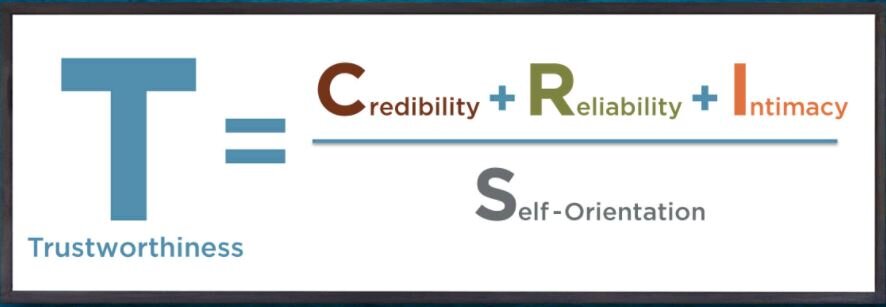Trust is a word that is being overused by many professionals these days. Maybe that’s because it’s a critical success factor for 2024. I don’t call myself a “Trusted Advisor” (connect with me on LinkedIn if you want to know my thoughts on that title). Trust is determined by the people who meet and know you. “Trusted Advisor” is, therefore, not a title you claim for yourself, but one they give you.
With the amount of misinformation, disinformation, and AI-Generated content of all types, consumers and clients have become wary and doubtful of the information they receive. Some AI content is so realistic and can accurately create the likeness and voices of well-known people. It is so accurate, that it’s nearly impossible to tell, even for the celebrities themselves sometimes. These deepfakes have raised concern in many circles. not just among celebrities. Efforts against the spread of false information and deepfakes are being applied on new fronts every day. The amount of disinformation and misinformation that exists erodes trust.
AI Technology is wonderful, but it can also cause great harm. The difference between the positive and negative impacts of Generative AI rests on a single factor: The ethics of the humans using it. Given the highly competitive business world we exist in today, you can see the sharp edge that presents. Trustworthiness, therefore, is key for success.
Because AI use is on the rise, you will need to cultivate trust more in 2024 than ever before. There are four factors that contribute to a feeling of trust, and the process for building it is described in a book and captured in an equation. The Trustworthiness Equation, from the from the book “The Trusted Advisor” by David Maister, Charles Green, and Robert Galford, provides a roadmap to increasing the trust others will place in you.

As this equation shows, increasing Credibility, Reliability, and Intimacy, while limiting your Self-Orientation will improve your trustworthiness score. The higher the score, the more prospective clients will believe in your message and company, the more sales you will close, and the higher the number of referrals you will receive.
What are these components of trustworthiness and how do you improve them?
Credibility
Your words matter, and they need to be credible. This is how people will assess your competence, knowledge, and capabilities, as well as how much confidence you inspire in others. If you’re not credible, you’re not trustworthy.
Reliability
Your words need to match your actions to demonstrate reliability. Do you say what you mean, and mean what you say? Are you consistent and predictable? This builds confidence in your reliability.
Intimacy
This is reflected by how safe people feel in sharing their thoughts and concerns with you. You need to ensure people feel safe enough to share. When they do, your intimacy score will increase.
Self-Orientation
The only one of the four scores that you want to lower is self-orientation. This is a measure of how often you put your own needs before your clients’. If you are highly self-oriented, your trustworthiness score will be very low.
These are human traits, so how doe they roll up to the company? The trustworthiness of a company is determined by the scores for every person associated with your organization that the client or prospect interacts with. It’s a composite score of sorts. That means that anyone in your circle who is less than trustworthy will potentially hurt your score. This is true even if you’ve done nothing to earn the distrust. It’s an unfortunate consequence of where we are today.
We are not sure whether this drop in trust among prospects and customers is completely warranted, but we are very certain that you will need to increase your trustworthiness as a result. Before you start using that “Trusted Advisor” moniker, determine how you would score on the scale, and improve it if you can. If you’re looking to hire or contract with someone, figure out their score, and use it as a guide for your contracting/hiring decision. And remember, it’s the person on the other end of the transaction who decides whether they see you as a “Trusted Advisor.”
And if you’d rather leave the worries of creating and building trust in your marketing to someone else, let’s chat! Our fractional Chief Marketing Officers and Marketing Consultants can work with your internal team or designated marketing agency to do that!
Here’s to your greater success in 2024!


